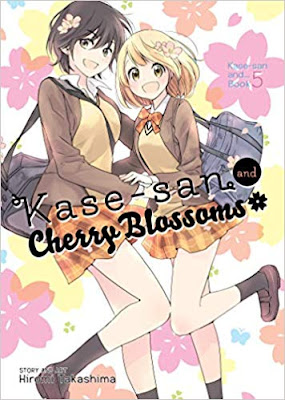 I deeply deeply love "Prep" by Curtis Sittenfeld. I really really liked "American Wife." But I've felt very indifferent about her other three books ("Man of My Dreams," "Eligible," and "Sisterland"). They weren't bad by any stretch, but they didn't have the magic of both content and prose that the other two works had.
I deeply deeply love "Prep" by Curtis Sittenfeld. I really really liked "American Wife." But I've felt very indifferent about her other three books ("Man of My Dreams," "Eligible," and "Sisterland"). They weren't bad by any stretch, but they didn't have the magic of both content and prose that the other two works had.I went into Ms. Sittenfeld's short story collection, "You Think It, I'll Say It," hopeful that it would have the magic of "Prep." Unfortunately, with only a one small exception, it was more like her other works: fine, but not "for the ages."
I'm not a huge fan of short stories overall, they just have never done much for me. I like to get the depth of a character over time as they change, and by their very nature, short stories typically operate in an abbreviated time-frame. But putting that aside, there is the quality of prose to evaluate and whether there is any emotional connection formed with the reader.
For the most part, I found the prose good but not great, and experienced very little that drew me in to the characters. Many of them weren't very likable or even necessarily relatable. Many seemed like cliched sketches and not actual flesh and blood people, as if each was designed to fulfill the point of the story.
The plots were largely about young and middle-aged women, mostly from middle-class or upper-middle-class backgrounds, exploring jealousy, sexuality, infidelity, regrets, and even some political sentiments; these are all rich and important things to explore. However, there wasn't much new added to the discourse by these stories, no insights. Also, the politics felt tacked on, almost a need by the author to explicitly repudiate President Trump (and believe me, I'm all for repudiating him) simply because the book was published and set in the current time period. Yet, it felt jarring and out of place against the more personal sentiments of the stories.
And so sadly, very little of the plot or character exploration felt new or insightful. Sometimes new isn't needed, sometimes a book can cover the same old ground but create deep emotional resonance with a reader: "Yes, that's me, I felt like that too!" But these stories simply did not do that for me. I can't speak to what others may take away from them, but they felt very by-the-numbers, with predictable outcomes and no real insight into the human condition. With one exception. One very amazing exception.
The third story, "Vox Clamantis in Deserto," tells of two college students, one visiting the hometown of the other. Given that it's a short story, I can't tell you much more, because the plot is brief but important. But the middle of this story is Ms. Sittenfeld at her finest. For a few pages, at the height of the action, the prose sings, the emotions are real, the experience vivid, the connections to our own lives pulled taught.
Interestingly, there are similarities in the plot to "Prep" and I can't discount the impact that those years (teens/college) had in my own life, so there is the very real possibility that I'm responding to "Vox Clamantis in Deserto" in ways others might not. But I am sure that those middle pages, the chief encounter between the young woman and her friend's boyfriend, are written at another level compared to the rest of this collection. The prose there is lucid and visceral in a way the rest of the collection (and even the rest of that story) simply isn't.
However, Ms. Sittenfeld tries to make something out of this story and concludes it in a relatively perfunctory way that ends up reducing and diminishing the power of those few pages in the middle. The wrap-up is indicative of the way all the stories end, with a nice neat bow, almost a lesson, and in that conclusion, we lose the intimacy of the chief experience within the story.
But oh, what a few wonderful pages she gave us. It shows what she is capable of, and given that she has sustained that for entire novels, I will continue to be an avid reader of hers. Even at her most run-of-the-mill, Ms. Sittenfeld's writing is a nice read. But when the magic creeps in, she shows the talent to be remembered. At the very least, she has given us an all-time classic in "Prep." I'll keep holding out hope for another work of that sustained brilliance.
Sadly, "You Think It, I'll Say It" is not that book. While perfectly pleasant, it gets a 6.5/10. Readable, some people might really connect, but overall the prose is adequate, the stories predictable and hardly revealing. Yet there is the middle few pages of "Vox Clamantis in Deserto" which almost single-handedly justifies reading the entire book.
✩🚺







